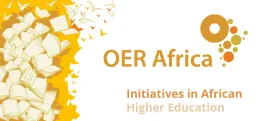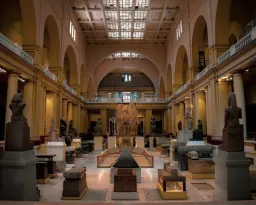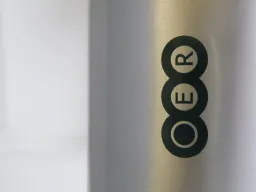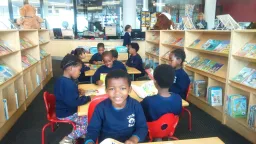Explore the dynamic world of Open Educational Resources and discover how OER Africa is driving the movement forward. This page is divided into two sections:
Articles: Our articles aim to deliver insights on OER-related themes that inform, spark conversation, and engage with the developing open education landscape, with a particular focus on Africa.
Updates: Below, the articles, you'll find updates on OER Africa’s latest initiatives, activities, and contributions to the OER community.
Articles
This section features targeted articles crafted specifically for educators, students, and the global Open Educational Resources (OER) community. The articles examine themes related to OER, offering insightful perspectives and information. The content seeks to inform, prompt discussion, and actively engage with the dynamic landscape of open education, particularly within the African context.

What have been the experiences of African Open Educational Resources (OER) initiatives focussed on higher education? What can we learn from these experiences? Although the concept of OER initially gained publicity in the Global North, OER are gaining traction in Africa. OER Africa researched several African OER initiatives to assess their long-term contribution to establishing sustainable OER practices in African higher education.

Museums tell ancient and recent histories as they collect, safeguard, and make accessible artefacts and specimens that they hold in trust to inspire and enable people to explore, learn, and enjoy. They continue to evolve in their roles and contribution to education as they embrace open access and Open Educational Resource (OER) principles.

OER Africa coordinated a project with members of the Network of Open Orgs, a coalition of organizations that meets regularly on implementing and supporting the UNESCO OER Recommendation. The project involved a collaborative effort among several members of the Network to develop a set of seven research summaries that explore the success of OER.

Half a century ago, on 26 April 1970, the World Intellectual Property Organization (WIPO) Convention came into force and is commemorated as World Intellectual Property (IP) Day, with the aim of increasing general understanding of IP. At OER Africa, we respect the right of individuals to protect their IP and we understand its importance in driving innovation. However, in the case of educational materials, we believe that All Rights Reserved may often not be the most appropriate copyright in today’s world.

As of 2022, activities by UNESCO to support implementation of its OER Recommendation are gathering pace and OER Africa is pleased to be assisting UNESCO in this important work. The Recommendation on Open Educational Resources (OER) (40 C/32) was adopted at the 40th UNESCO General Conference in Paris on 25th November 2019 as the culmination of a long process of UNESCO engagement with the concept of OER.

This week (14-20 March 2022) is South African Library Week. In 2001, the Library and Information Association of South Africa (LIASA) established Library Week for all types of libraries in South Africa to market their services and create awareness of the important role that libraries play in a democracy.
Updates
This section provides updates on OER Africa’s initiatives and activities. Stay informed about our contributions to the OER community and how we are driving the open education movement forward.

Saide's OER Africa consultant, Brenda Mallinson, will be running a session together with Shadrack Mbogela from the Open University of Tanzania on "Exploring the Digital Fluency course for Academic staff Professional Development" at the e/merge Online Festival.

Discover ten key facts about open educational resources (OERs) in an easy to digest format. Each fact is supplemented with links to worldwide resources extending and deepening the core idea.

Exploring Aspects of Digital Fluency for Blended Teaching and Learning. Workshop presentation by Brenda Mallinson to The First Annual Teaching and Learning Conference 2018 at North West University, South Africa. The workshop was on the digital fluency course developed together with the Open University of Tanzania.

London School of Economics Press has launched the latest in a succession of new university press initiatives and one that will support the development of high-quality, academic-led, open access publications in the social sciences. Kieran Booluck provides details of the first LSE Press journal and outlines plans for the press to pursue more innovative publications and experiment with new types of content.

COL has identified the development of OER as a potential answer to the challenges of access to relevant learning resources to ensure inclusive and equitable quality education. Provincial/regional OER policies and guidelines were developed in Sri Lanka, Botswana, and Cameroon involving provincial/regional education policymakers.

The Open Pedagogy Notebook has been set up by Rajiv Jhangiani from Kwantlen Polytechnic University in British Columbia and Robin deRosa from the Plymouth State University in New Hampshire. They are encouraging online submissions of examples of open pedagogical practices from practioners throughout the world.
